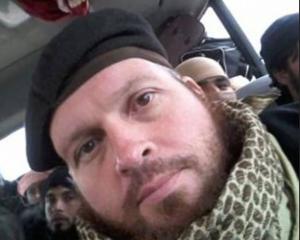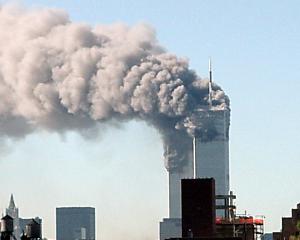Assad's forces fought near the northern city of Aleppo on Thursday and bombarded the central city of Homs, having seized the initiative by winning the open backing of Hezbollah last month and capturing the strategic town of Qusair last week.
The arrival of thousands of seasoned, Iran-backed Hezbollah Shi'ite fighters to help Assad combat the mainly Sunni rebellion has shifted momentum in the two-year-old war, which the United Nations said on Thursday has killed at least 93,000 people.
US and European officials anxious about the rapid change are meeting the commander of the main rebel fighting force, the Free Syrian Army, on Friday in Turkey. FSA chief Salim Idriss is expected to plead urgently for more help.
Obama has come under mounting pressure in recent weeks from allies abroad and politicians at home to take more action to help the rebels as the balance of power tilts towards Assad.
He has so far been more cautious than Britain and France, who have already forced the European Union this month to lift an embargo that had blocked weapons for the rebels.
"The president is reviewing and considering what other options are available to him and to the United States as well as our allies and partners for further and additional steps in Syria, and that process continues," White House spokesman Jay Carney said.
"As terrible as the situation is in Syria, he has to make decisions when it comes to policy towards Syria that are in the best interests of the United States."
Western governments that months ago predicted Assad would soon fall now believe that support from Tehran and Hezbollah are giving Assad the upper hand. However, they also worry that sending arms to rebel fighters could empower Sunni Islamist insurgents who have pledged their loyalty to al Qaeda.
While Britain and France have yet to announce their own decisions to start arming the rebels, their diplomats have been making the case that the best way to counter both threats is to beef up support for Idriss's mainstream rebel force.
Strengthening the FSA with money, weapons and ammunition, they argue, would both help combat Assad and also provide a counterweight among the rebels to al Qaeda-linked groups.
France in particular has developed good relations with Idriss while providing funds and non-lethal support, and seems eager to send him military aid.
BILL CLINTON SPEAKS OUT
Among those whose comments put pressure on Obama to act was one of his predecessors, Bill Clinton.
"The only question is: now that the Russians, the Iranians and Hezbollah are in there head over heels ... should we try to do something to try to slow their gains and rebalance the power so that these rebel groups have a decent chance to prevail," the ex-president was quoted by newspaper Politico as saying.
Assad's government says its next move will be to re-capture Aleppo in the north, Syria's biggest city and commercial hub, which has been divided since last year when advancing rebels seized most of the countryside around it.
Syrian state media have been touting plans for "Northern Storm", a looming campaign to recapture the rebel-held north.
The United Nations, which raised its death toll for the war so far to 93,000 on Thursday, said it was concerned about the fate of residents if a new offensive is launched.
"All of the reports I'm receiving are of augmentation of resources and forces (for an Aleppo offensive) on the part of the government," U.N. Human Rights Commissioner Navi Pillay told Reuters Television.
Assad's army appears to be massing some troops in its footholds in Aleppo province, particularly in Shi'ite areas such as the enclaves of Nubel and Zahra, although some opposition activists say the government may be exaggerating the extent of its offensive to intimidate rebel supporters.
Activists reported fighting in the area around Aleppo on Thursday, especially near an airport that rebels have been trying to capture. The government has also launched an offensive in Homs, the closest big city to its last victory in Qusair and one of the last major rebel strongholds in the country's centre.
"There was a fourth day of escalations today on the besieged neighbourhoods of Homs's old city. Early in the morning there were two air strikes ... followed by artillery and mortar shelling," said Jad, an activist from Homs speaking via Skype.
"More than 25 rockets fell in one area and then the area was combed with tanks.... The shelling is still going on now."
Ahmed al-Ahmed, an activist in Aleppo, said the government's reinforcements in the north were just a distraction from Homs.
"They've turned the world's attention to watching northern Aleppo and fearing an attack and massacres as happened to our people in Qusair, to get us to forget Homs which is the decisive battle."
Hezbollah's participation has deepened the sectarian character of the war, with Assad, a member of the Alawite offshoot of Shi'ite Islam, backed by Shi'ite Iran and Hezbollah while Sunni-ruled Arab states and Turkey back the rebels.
The 7th century rift between Sunni and Shi'ite Islam has fueled violence across the Middle East in recent decades, including the sectarian bloodletting unleashed in Iraq since the 2003 US invasion and the Lebanese civil war of 1975-1990.
Leading Sunni Muslim clerics met in Cairo on Thursday and issued a call to jihad on Thursday, condemning the conflict as a "war on Islam".











